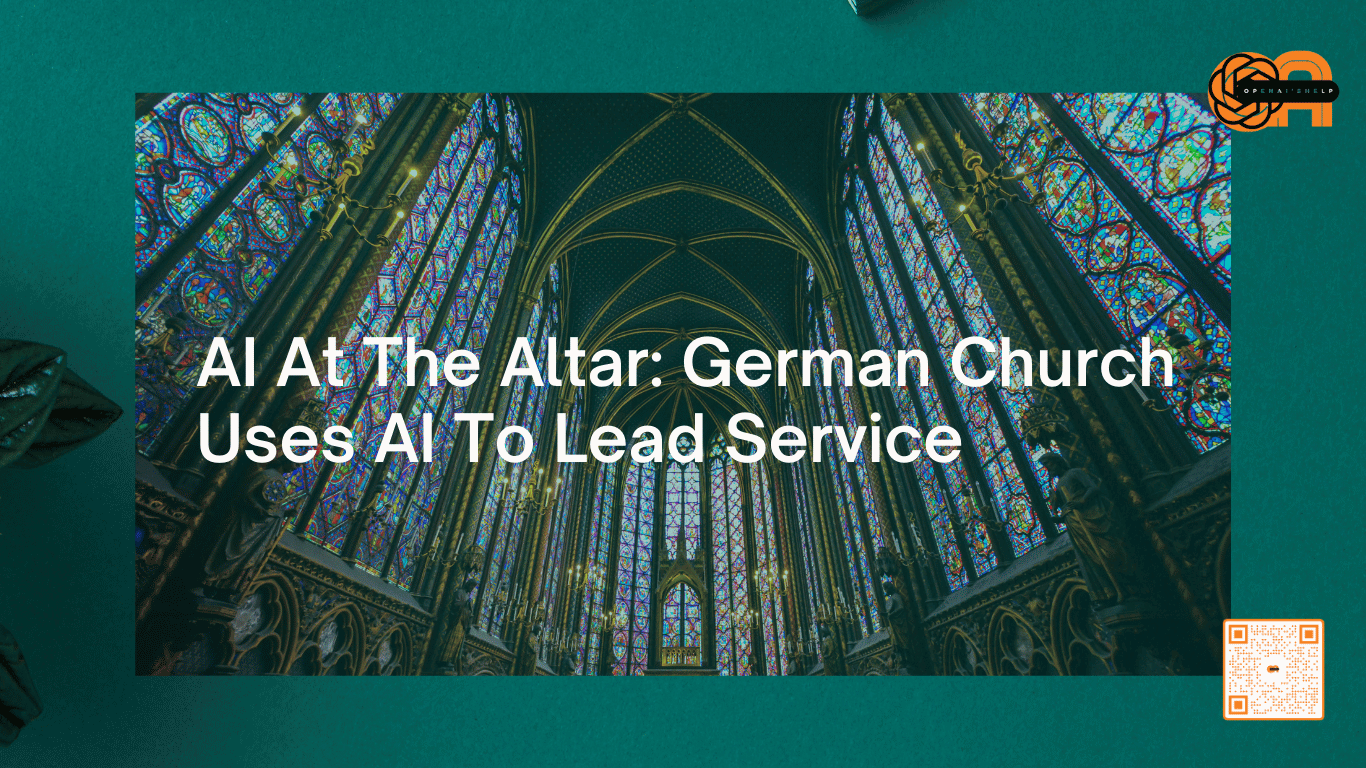Recently, an intriguing development unfolded at Saint Paul's Church in Früth, Germany, during the Deutscher Evangelischer Kirchentag, a biennial convention that draws thousands of attendees. Over 300 people gathered to witness an unconventional church service powered by ChatGPT, an AI language model developed by OpenAI hence AI at the Altar.The concept was the idea of …
AI At The Altar: German Church Uses AI To Lead Service

Recently, an intriguing development unfolded at Saint Paul’s Church in Früth, Germany, during the Deutscher Evangelischer Kirchentag, a biennial convention that draws thousands of attendees. Over 300 people gathered to witness an unconventional church service powered by ChatGPT, an AI language model developed by OpenAI hence AI at the Altar.
The concept was the idea of Jonas Simmerlein, a 29-year-old theologian and philosopher from the University of Vienna. With 98% of the service’s content generated by ChatGPT, the event aimed to explore the possibilities of integrating AI into religious practices.
For approximately 40 minutes, the AI-generated sermon was delivered by computer-generated avatars displayed on a screen above the altar. The songs and prayers were also sourced from the AI chatbot. The service revolved around the event’s motto, “Now is the time,” emphasizing themes of personal growth, overcoming fear, and maintaining unwavering faith.
While the experiment showcased the potential applications of AI in religious contexts, some attendees noted a lack of emotional connection and warmth typically associated with human-led services. They expressed that the avatars lacked the personal touch they were accustomed to, stating, “There was no heart or soul.

However, Jonas Simmerlein clarified that the intention was never to replace religious leaders but to view AI as a supportive tool. He envisioned AI assisting pastors by providing sermon ideas or easing the sermon-writing process, allowing religious leaders to focus more on individual spiritual guidance.
This begs the question: Is this the future of church services? While the use of AI in religious settings may polarize opinions, it undoubtedly opens up intriguing possibilities. Integrating AI technology could enable religious leaders to enhance their services, optimize their time, and engage with their congregations in new ways.
As AI continues to advance, it is crucial to carefully consider its implications for spiritual practices. Striking a balance between embracing technological advancements and preserving the essence of traditional religious experiences will be pivotal in shaping the future of church services.
Conclusion
So, what are your thoughts? Is AI an exciting addition to religious services, or does it risk compromising the personal and emotional aspects that define such sacred gatherings? The intersection of AI and spirituality presents us with profound questions that only time and collective dialogue can truly answer.


